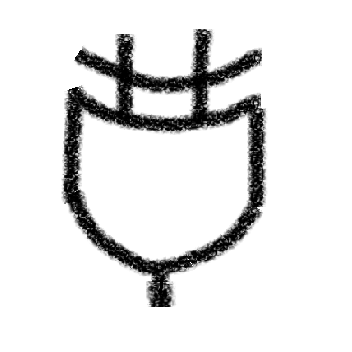結果
| 問題 | No.214 素数サイコロと合成数サイコロ (3-Medium) |
| コンテスト | |
| ユーザー |
 kuuso1 kuuso1
|
| 提出日時 | 2015-08-11 16:29:49 |
| 言語 | C#(csc) (csc 3.9.0) |
| 結果 |
AC
|
| 実行時間 | 2,776 ms / 3,000 ms |
| コード長 | 6,918 bytes |
| 記録 | |
| コンパイル時間 | 942 ms |
| コンパイル使用メモリ | 115,972 KB |
| 実行使用メモリ | 29,236 KB |
| 最終ジャッジ日時 | 2024-07-18 06:43:46 |
| 合計ジャッジ時間 | 10,578 ms |
|
ジャッジサーバーID (参考情報) |
judge5 / judge3 |
(要ログイン)
| ファイルパターン | 結果 |
|---|---|
| other | AC * 3 |
コンパイルメッセージ
Microsoft (R) Visual C# Compiler version 3.9.0-6.21124.20 (db94f4cc) Copyright (C) Microsoft Corporation. All rights reserved.
ソースコード
using System;
using System.Collections;
using System.Collections.Generic;
using System.Linq;
using System.Text;
class TEST{
static void Main(){
Sol mySol =new Sol();
mySol.Solve();
}
}
class Sol{
public void Solve(){
uint[] PDice=new uint[]{2,3,5,7,11,13};
uint[] CDice=new uint[]{4,6,8,9,10,12};
uint mod=(uint)1e9+7;
// dpP[n][val]:n回の出目でvalになる組み合わせ
uint[][] dpP=new uint[P+1][];
for(uint i=0;i<=P;i++){
dpP[i]=new uint[13*P+1];
}
dpP[0][0]=1;
for(uint i=0;i<PDice.Length;i++){
for(uint j=0;j<P;j++){
for(uint k=0;k<dpP[j].Length;k++){
if(k+PDice[i]>=dpP[j+1].Length)continue;
dpP[j+1][k+PDice[i]]+=dpP[j][k];
dpP[j+1][k+PDice[i]]%=mod;
}
}
}
//Console.WriteLine(String.Join(" ",dpP[P]));
// dpC[n][val]:n回の出目でvalになる組み合わせ
uint[][] dpC=new uint[C+1][];
for(uint i=0;i<=C;i++){
dpC[i]=new uint[12*C+1];
}
dpC[0][0]=1;
for(uint i=0;i<CDice.Length;i++){
for(uint j=0;j<C;j++){
for(uint k=0;k<dpC[j].Length;k++){
if(k+CDice[i]>=dpC[j+1].Length)continue;
dpC[j+1][k+CDice[i]]+=dpC[j][k];
dpC[j+1][k+CDice[i]]%=mod;
}
}
}
//Console.WriteLine(String.Join(" ",dpC[C]));
// P,C個の組み合わせ:1回振って出る出目の組み合わせ
uint MaxLen=13*P+12*C;
ulong[] Throw=new ulong[MaxLen+1];
for(uint i=0;i<=13*P;i++){
for(uint j=0;j<=12*C;j++){
Throw[i+j]+=dpP[P][i]*dpC[C][j];
Throw[i+j]%=mod;
}
}
//Console.WriteLine(String.Join(" ",Throw));
//Console.WriteLine("MaxLen={0}",MaxLen);
//
// C[k]をk番目のマスに来る組み合わせとして、0番目のマスからN-1番目のマスまで順次サイコロを振っていく様子を考える。
// ・kマスからk+tマスに動く組み合わせは C[k]*Throw[t] だけあるので
// kマスでサイコロを振ると、C[k+j] (j=1,2,…,13*P+12*C)にC[k]*Throw[j]だけ足されていく。
// ・C[0]==1
//
// (簡潔化のため出目の最大値=3、Throw[1]=a,Throw[2]=b,Throw[3]=c とし、N=5とすると
//
// Turn 0 1 2 3 4 5 6 7 (マス)
// 0 C[*] 1(=C0)
// 1 C[*] C0*a C0*b C0*c
// (=C1)
// 2 C[*] C0*b+C1*a C0*c+C1*b C1*c
// (=C2)
// 3 C[*] C0*c+C1*b+C2*a C1*c+C2*b C2*c
// (=C3)
// 4 C[*] C1*c+C2*b+C3*a C2*c+C3*b C3*c
// (=C4)
// 5 C[*] C2*c+C3*b+C4*a C3*c+C4*b C4*c
//
// この時点で全ての場合においてN>=5にゴールしているので、ここで和を取る。(C2*c+C3*b+C4*a + C3*c+C4*b + C4*c)
//
// ・ここで係数だけみると、 多項式 T^7 を 多項式 T^3-(a*T^2+b*T^1+c*T^0) で筆算で割り算しているのと同じという事がわかる。
// (最後に余りの係数の総和をとる)
// ・ということで、元の問題は 多項式 T^(N+(出目の最大値)-1) を 多項式 ΣThrow[k]*T^k で割って、余りを求めればよい。
// kitamasa(O(d^2 Log N))
ulong[] rel=new ulong[MaxLen];
for(uint i=0;i<MaxLen;i++)rel[i]=Throw[i+1];
Array.Reverse(rel);
// usage:ak=rel[0]*a0+...+rel[k-1]*a(k-1);
// T^k=rel[0]*1+rel[1]*T^1+...+rel[k-1]*T^(k-1);
var Kitamasa=new ModPolynomial_m(rel,mod);
//for(uint i=0;i<30;i++)Console.WriteLine(i+":"+String.Join(" ",Kitamasa.CalcModPolyT(i))+":"+Kitamasa.CalcModPolyT(i).Sum());
ulong[] coef=Kitamasa.CalcModPolyT(N+MaxLen-1);
ulong ret=0;
for(uint i=0;i<coef.Length;i++){
ret+=1*coef[i];
while(ret>mod)ret-=mod;
}
Console.WriteLine(ret);
}
ulong N;
uint P,C;
public Sol(){
var ss=rsa();
N=ulong.Parse(ss[0]);
P=uint.Parse(ss[1]);
C=uint.Parse(ss[2]);
}
static String rs(){return Console.ReadLine();}
static uint ri(){return uint.Parse(Console.ReadLine());}
static ulong rl(){return ulong.Parse(Console.ReadLine());}
static double rd(){return double.Parse(Console.ReadLine());}
static String[] rsa(){return Console.ReadLine().Split(' ');}
static uint[] ria(){return Array.ConvertAll(Console.ReadLine().Split(' '),e=>uint.Parse(e));}
static ulong[] rla(){return Array.ConvertAll(Console.ReadLine().Split(' '),e=>ulong.Parse(e));}
static double[] rda(){return Array.ConvertAll(Console.ReadLine().Split(' '),e=>double.Parse(e));}
}
class ModPolynomial_m{
//Kitamasa method (naive convolution/naive reduction);
uint K;
ulong[] Rel;
ulong mod;
public ModPolynomial_m(ulong[] rel,ulong mod_){
// usage: ak=rel[0]*a0+...+rel[k-1]*a(k-1);
// T^k=rel[0]*1+rel[1]*T^1+...+rel[k-1]*T^(k-1);
Rel=new ulong[rel.Length];
K=(uint)Rel.Length;
for(uint i=0;i<K;i++)Rel[i]=rel[i];
mod=mod_;
}
public ulong[] Convolution_m(ulong[] a,ulong[] b){
// calc. a*b (convolution) naive
uint L=(uint)(a.Length+b.Length-1);
ulong[] ret=new ulong[L];
for(uint i=0;i<a.Length;i++){
if(a[i]==0)continue;
for(uint j=0;j<b.Length;j++){
if(b[j]==0)continue;
ret[i+j]+=a[i]*b[j];
if(ret[i+j]>mod)ret[i+j]%=mod;
}
}
return ret;
}
public ulong[] Reduction_m(ulong[] a){
// reduce with Relation a(k)=rel[0]*a0+...+rel[k-1]*a(k-1);
if(a.Length<=K)return a;
uint N=(uint)a.Length;
//ulong[] ret0=(ulong[])a.Clone();
ulong[] ret0=new ulong[a.Length];
for(uint i=0;i<a.Length;i++)ret0[i]=a[i];
// ulonger than K part
for(uint i=N-1;i>=K;i--){
if(ret0[i]==0)continue;
for(uint j=0;j<K;j++){
if(Rel[j]==0)continue;
ret0[i-K+j]+=ret0[i]*Rel[j];
if(ret0[i-K+j]>mod)ret0[i-K+j]%=mod;
}
}
ulong[] ret=new ulong[K];
for(uint i=0;i<K;i++)ret[i]=ret0[i];
return ret;
}
public ulong[] CalcModPolyT(ulong k){
// calc T^k mod Rel, return the coef.
// b7=b(1+2+4)=b1*b2*b4 etc.
ulong[] ret=new ulong[]{1};//b0
ulong[] x=new ulong[]{0,1};//b1
while(k>0){
if((k&1)==1){
ret=Reduction_m( Convolution_m( ret,x ));
}
k>>=1;
x=Reduction_m( Convolution_m( x,x ));
}
return ret;
}
/*
b0:(a0,a1,a2)->a0 b0=(1,0,0);
b0:(a1,a2,a3)->a1
b1:(a0,a1,a2)->a1 b1=(0,1,0);
b0:(a2,a3,a4)->a2
b1:(a1,a2,a3)->a2
b2:(a0,a1,a2)->a2 b2=(0,0,1);
b0:(a3,a4,a5)->a3
b1:(a2,a3,a4)->a3
b2:(a1,a2,a3)->a3
b3:(a0,a1,a2)->a3 b3=(0,0,0,1)=(1,1,1) <=> a3=a2+a1+a0; <=> t^3 mod t^3-t^2-t^1-1 = t^2+t^1+1
b0:(a4,a5,a6)->a4
b1:(a3,a4,a5)->a4
b2:(a2,a3,a4)->a4
b3:(a1,a2,a3)->a4
b4:(a0,a1,a2)->a4 b4=(0.0,0,0,1)=(0,1,1,1)=(1,2,2) <=> a4=a1+a2+a3=a0+2*a1+2*a2 <=> t^4 mod t^3-t^2-t^1-1 == t^3+t^2+t^1 == 2*t^2+2*t^1+1
b(x+y)=b(1+...+1+1+...+1)=b1*...*b1*b1*...*b1=b(1+...+1)*b(1+...+1)=bx*by
*/
}
